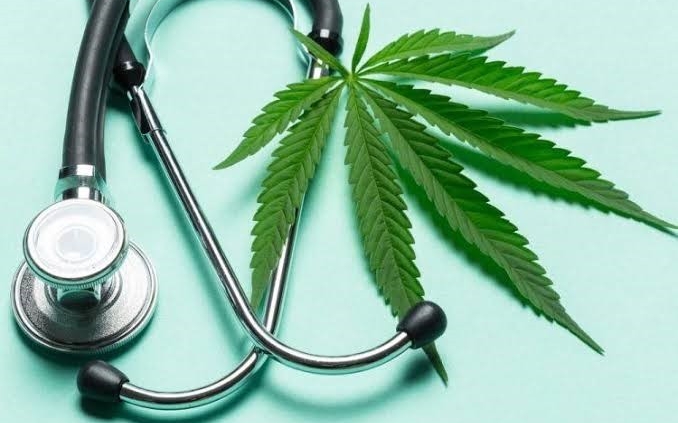What You Need to Know About Medicinal Cannabis?
If you haven’t already, you may begin to hear the term, ‘medicinal cannabis’ used more and more often in Australia over the coming months and years. Countries such as the United States, Canada, Israel and the Netherlands (as well as many others) have already passed legislation surrounding the medicinal use of cannabis, and Australia is following closely behind.
Today, medicinal cannabis is now accessible by patients with certain conditions and side-effects of those conditions across the country (Neuroscience Trials Australia 2018).
A Brief History of Cannabis
The World Health Organisation (WHO) states that cannabis is the most widely cultivated, trafficked and abused illicit drug worldwide, with half of all drug-induced seizures being cannabis-related (WHO). Most of us are therefore aware that cannabis, commonly termed as ‘weed,’ or ‘pot,’ is well-known for its psychoactive effects – that is, giving the feeling of being ‘high’ or ‘stoned.’ This major psychoactive constituent in cannabis is called delta-9 tetrahydrocannabinol (THC), (World Health Organisation) and the risks associated with its effects are the reason for cannabis historically being deemed illegal.
However, THC is only one of the cannabinoid chemicals produced by the cannabis plant (Halperin 2018). Another one of the cannabinoids which can be extracted from cannabis is called cannabidiol (CBD), and it is this cannabinoid which is the focus of the positive medicinal attention. Why? Because CBD is not psychoactive; it doesn’t get people high! (Halperin 2018).
Instead, medicinal cannabis has been shown to elicit anti-epileptic effects in humans, is commonly used to manage painful muscle spasms caused by multiple sclerosis, and has been used in the final stages of cancer to combat pain and chemotherapy-induced nausea (Neuroscience Trials Aus 2018).
Barriers and Fears to Cannabis Legalisation
The primary perception of cannabis focuses mainly on the acute and chronic negative effects of THC on the body, including; impaired cognitive development, impaired psychomotor performance which creates an increased risk of motor vehicle accidents, exacerbation of schizophrenia in those affected, the development of cannabis dependence, and impaired foetal development when used in pregnancy (WHO).
Hesitation also exists regarding the legalisation of medicinal cannabis on the grounds that further clinical trials are still needed to verify its benefits in greater detail, as a gap in knowledge surrounding the particulars of various cannabis-derived compounds, dosage levels, and its effects on conditions and symptoms still remain (Neuroscience Trials Australia 2018).
What’s important to remember however, is that only medicinal cannabis has been legalised in Australia, and that cannabis itself is still illegal in Australia unless you have a valid script that has been government approved under the Special Access Scheme.
Cannabis Prescription in Australia
The Therapeutic Goods Administration (TGA) is responsible for ensuring that therapeutic goods available for supply in Australia are safe and fit for their intended purpose under the Therapeutic Goods Act 1989 (The Act) (Department of Health TGA 2019). This also includes a number of ways that enable access to unapproved therapeutic goods. For medicinal cannabis products, these include access through:
· Authorised Prescriber Scheme (AP)
· Special Access Scheme (SAS)
Special Access Scheme (SAS) (Department of Health TGA 2019)
The TGA has a responsibility to encourage the use of medicines that are included in the Australian Register of Therapeutic Goods (ARTG), which have been evaluated to meet strict standards of safety, quality and effectiveness (Department of Health TGA 2019).
For this reason, medical practitioners (prescribers) are expected to have considered all clinically appropriate treatment options included in the ARTG before applying to access an unapproved medicinal cannabis product under the SAS (Department of Health TGA 2019). Where products in the ARTG are found to not be clinically suitable, the SAS provides a pathway for prescribers to access unapproved products for individual patients on a case-by-case basis (Department of Health TGA 2019).
To date, the TGA has approved SAS applications including, but not limited to the following indications;
- chemotherapy-induced nausea and vomiting
- refractory paediatric epilepsy
- palliative care indications
- cancer pain
- neuropathic pain
- spasticity from neurological conditions
- anorexia and wasting associated with chronic illness (such as cancer) (Dep of Health TGA 2019).
Potential Benefits of Medicinal Cannabis in the Future
Continuing scientific research in Australia has recently begun to demonstrate the medical benefits of cannabis, with the NSW Government pledging $9M since 2015 towards medical trials using cannabis to treat epilepsy in children, chemotherapy-induced nausea and vomiting in adults and appetite in adults with advanced cancer who are undergoing palliative care (The Cannabis Company 2019).
When it comes to discovering new treatments for illnesses and side-effects of illnesses which have long caused unresolved pain and suffering to individuals, the hope of something new and potentially beneficial is warmly welcomed.
REFERENCES
- World Health Organisation, https://www.who.int/substance_abuse/facts/cannabis/en/
- Halperin – The Guardian, https://www.theguardian.com/society/2018/may/28/what-is-cbd-cannabidiol-cannabis-medical-uses
- Therapeutic Goods Administration – Medicinal Cannabis, https://www.tga.gov.au/medicinal-cannabis-guidance-documents#guidance-docs
- Therapeutic Goods Administration – Special Access Scheme, https://www.tga.gov.au/access-medicinal-cannabis-products-1
- Special Access Scheme Online application Link – https://www.tga.gov.au/special-access-scheme-and-authorised-prescriber-online-system
- Neuroscience Trials Australia, http://www.neurotrialsaustralia.com/legalising-medicinal-cannabis-in-australia/
- The Cannabis Company, https://cannabiscompany.com.au/blogs/news/what-is-cannabis-effects-explained



 Acknowledgement Of Country
Acknowledgement Of Country

Trackbacks & Pingbacks
instagram.com/korotkovlakanfreud
instagram.com/korotkovlakanfreud
site
site
Forum
Forum
dilts.g-u.su
dilts.g-u.su
Comments are closed.